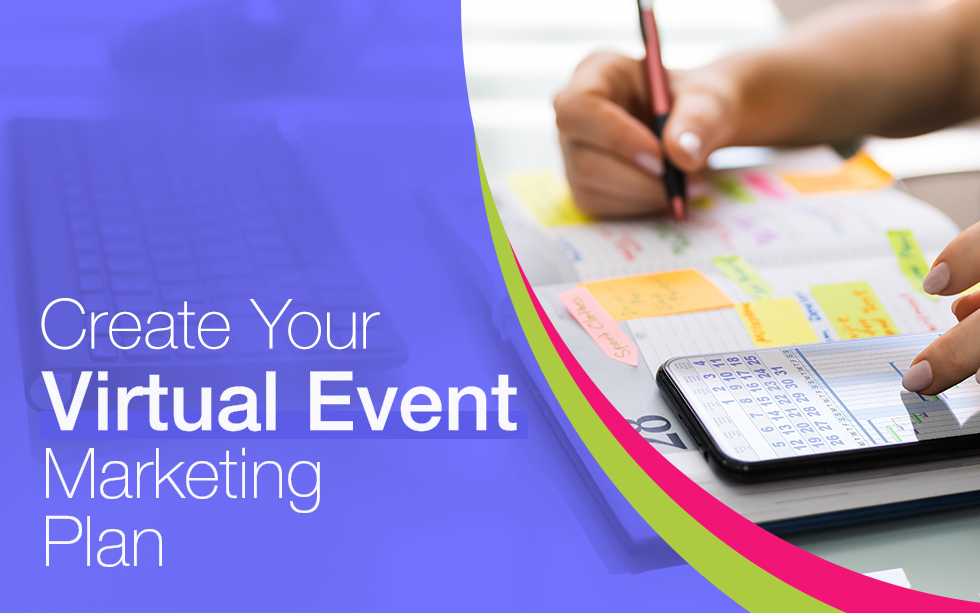29 Tips to Successfully Promote Your Virtual Event
The planning is underway – goals are set, the agenda is coming together, speakers are coming on board, and platforms are in place. Now, it’s time to start promoting your virtual event.
One benefit to virtual events is the opportunity to appeal more broadly to those who wouldn’t or couldn’t have participated in your live event, such as international attendees, senior executives, junior team members, or multiple individuals from the same organization. A virtual event can be a huge opportunity to expand your reach quickly, drive brand awareness and membership (if applicable), and increase future in-person attendance – if you can get them to your event.
A defined promotion plan is essential to get attendees to register and show up. Otherwise, all the other work will be for nothing.
Follow these tips to create a successful multi-channel promotion plan for your virtual event.
- Design a strategic brief, a concise summary of event goals and objectives, audience, and other vital details to serve as a guiding document throughout the promotion planning and execution process
- Estimate your marketing budget – it takes resources to create all the promotional materials and content needed to promote your event
- Develop a creative concept/theme and support messages that communicate a clear WIIFM (what’s in it for me?) benefit for why attendees should attend
- Build design guidelines including fonts, approved images, color palette, voice, tone, and more to keep your promotions on brand
- Create a library of template graphics, including social backgrounds, email headers, stylized speaker headshots, and sponsor recognition graphics
- Develop your event registration website or landing page, with all relevant details including event details, the schedule, speaker bios and photos, sponsor information, and FAQs
- Send an announcement/save the date email to kick-off your event promotions
- Set-up an automated confirmation email with an easy way for attendees to add the event to their calendar
- Start promoting early – typically 45 to 90 days before the event, rolling out different campaign messages as the event draws closer
- Stay top-of-mind in inboxes with promotional emails to your entire database list plus specific segments – removing those who have already registered before each send
- Develop a reminder email series that takes attendees from registration/purchase confirmation all the way up to the event day to drive day-of attendance
- Create an internal playbook to bring your sales team on board to support the event promotion, including several pieces of promotional content to share with clients and prospects
- Research and decide on a unique hashtag when promoting your event on social
- Create and launch an cross-platform social media plan
- Tag speakers, sponsors, exhibitors, and others in your social posts to elevate your content to new audiences
- Provide social post support copy (including the hashtag and registration URL) and images for both internal team members and external partners to make it easier for them to spread the word
- Set up a Facebook event page and invite your target audience
- Experiment with re-targeting ads delivered to event website visitors who didn’t register on their first visit
- Try a pilot sponsored ad campaign to expand your social media event promotional efforts
- Conduct polls or surveys to gather information about attendees’ preferences or topics to include in the event schedule
- Test an outbound calling campaign to personally invite VIPs or top prospects
- Weigh the pros and cons of incorporating a direct mail campaign, folding any physical outreach into the overall promotion schedule
- Incorporate past attendee testimonials in emails or social posts
- Continue ramping up the promotions two to three weeks before
- Test different call-to-actions, like “Join Hundreds of Others” or “Don’t Miss this Special Event” to tap into attendees’ fear of missing out (FOMO)
- Build a FAQ guide that outlines how to join the event, summarizes sessions/tracks, explains interactive features like chat and polling, and encourages social sharing with the event hashtag
- Keep tabs on campaign metrics throughout the promotional timeline – including total registration numbers and which promotions, messages, and channels drove the most registrations
- Use campaign results as a guide to expand successful promotions or extend special offers to boost registration as needed
- Schedule “Last Chance to Join” email and social posts early on the day of the event to attract late-joiners
Promoting a virtual event takes time and persistence. What other tips have you used to maximize attendance and make your event a success?
Beyond the promotion plan, there are many more planning details to ensure your virtual event succeeds. Learn the fundamentals of virtual event planning with ELI’s upcoming courses: Virtual & Event Meeting Management and Virtual Fundraising Event Management!
Join the 1,700+ (and growing!) who have mastered virtual event planning in the last six months and received their digital certifications!


